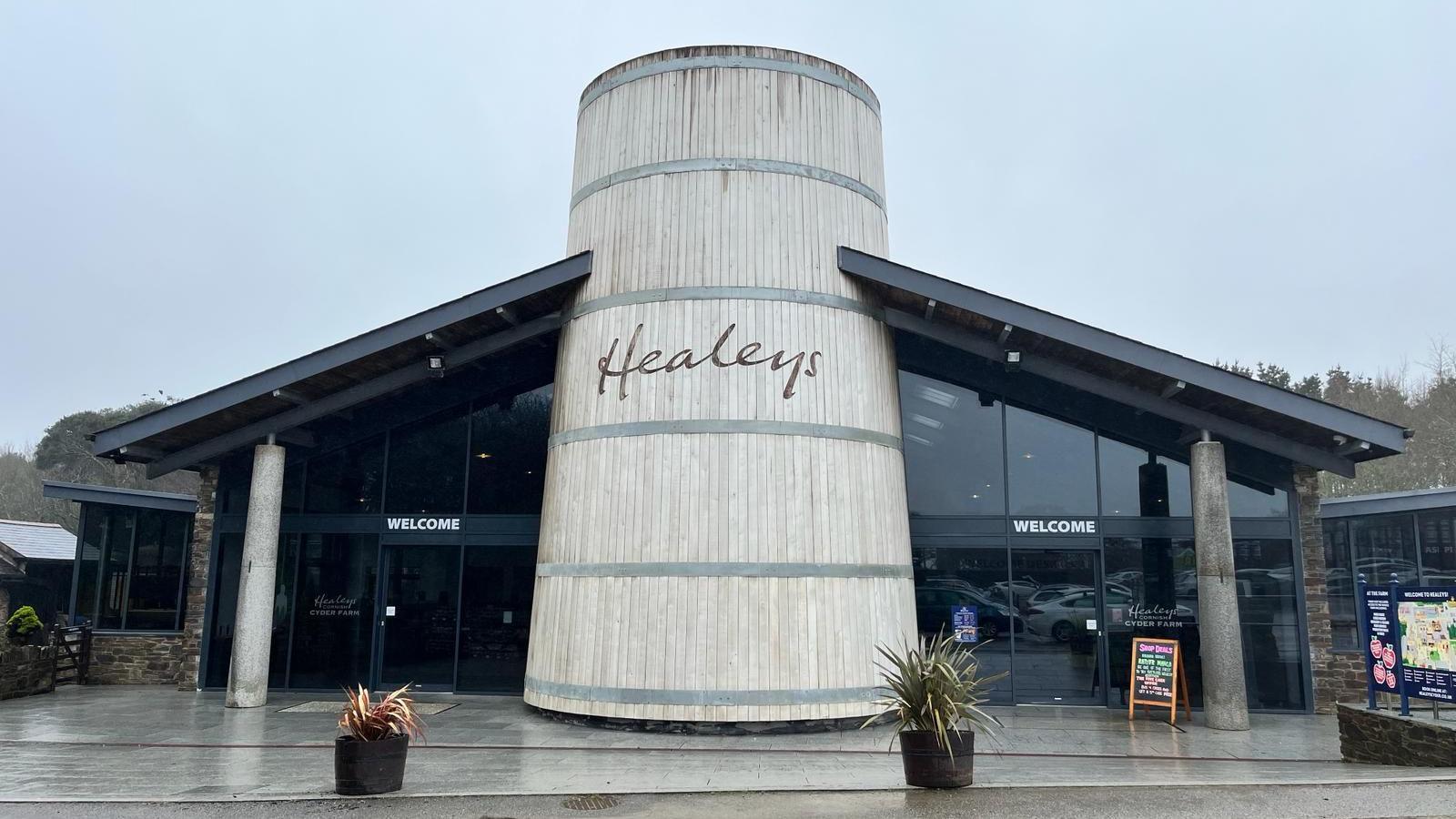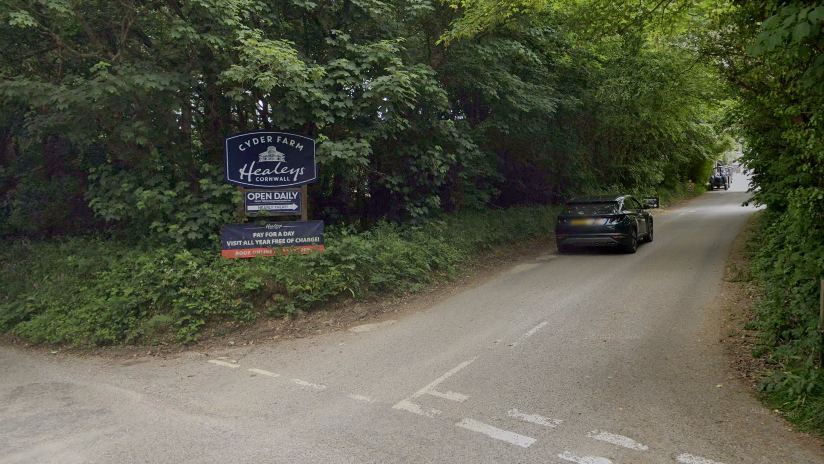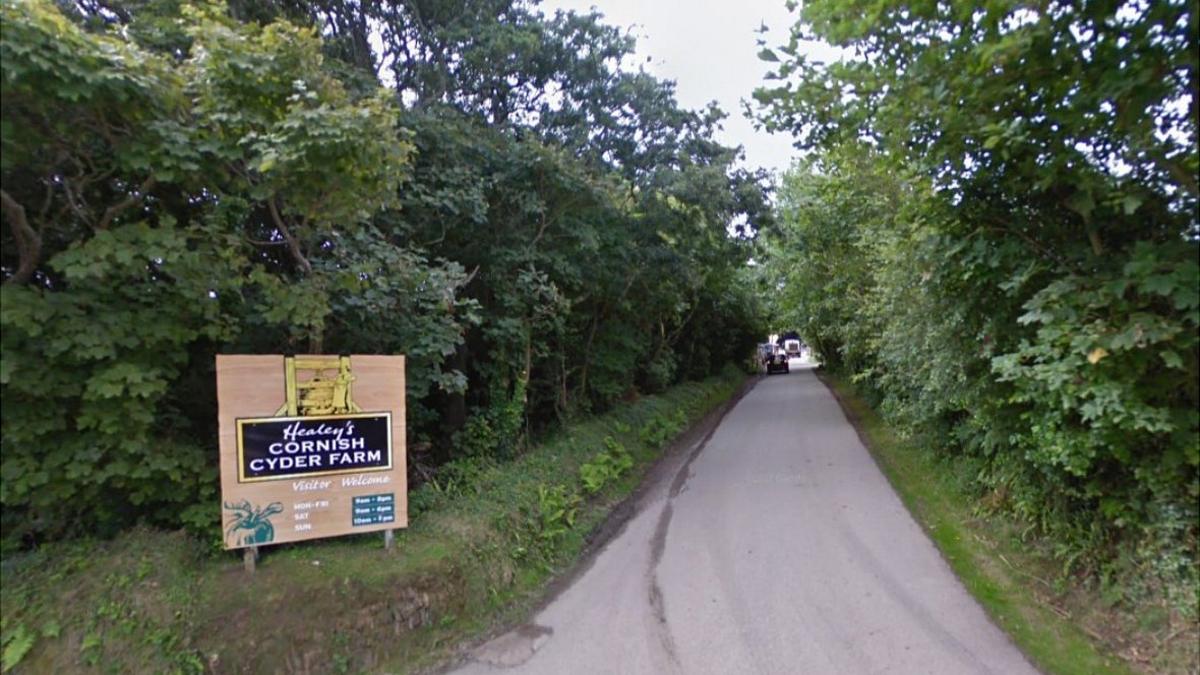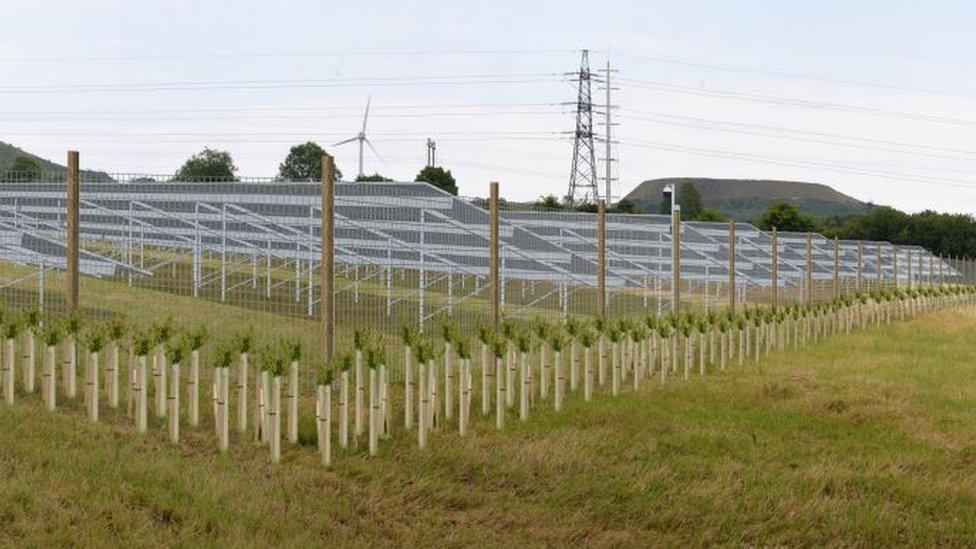Cider farm lodges complaint after solar refusal

Healey's said the solar farm would help it meet environmental targets
- Published
Healey’s Cyder Farm has lodged a formal complaint against some councillors after plans for a new solar farm were refused.
The company was unhappy with the conduct of some councillors at parish meetings to discuss the plans.
Plans to create a 2,000-panel solar farm at the company's base in Callestick, Cornwall were refused by Cornwall Council's central area planning committee on Monday.
Objections had been received from Perranzabuloe Parish Council and Historic England.
Joe Healey, representing the cider company, known for its popular Rattler cider, said it had submitted "a formal complaint to Cornwall Council referencing the conduct of certain councillors".
The solar farm plans consist of 15 rows of 2,226 panels on 2.48 hectares (6.1 acres) of agricultural land, the Local Democracy Reporting Service (LDRS) said.
The company said the solar farm would help reduce its carbon footprint by 65%.
It already offsets 39 tonnes of carbon with an existing wind turbine and 25kw solar farm, councillors heard.
The objections were based on the loss of agricultural land and visual impact.
Historic England also expressed concerns about the impact on a Bronze Age funeral round located in an adjacent field.

The company aims to reduce its carbon footprint by 65%
Mr Healey argued that the visual impact would be negligible and the area identified for the solar project is Grade 4 land, which has severe limitations.
He said: "It is currently used twice a year to house tents for our onsite festivals.
"There will be no loss of productive agricultural land."
He added: "Officially, the parish council has objected to this based on cumulative impact, but those present at the parish meetings will understand there are other factors at play here and we have submitted a formal complaint to Cornwall Council referencing the conduct of certain councillors."
He also highlighted the company’s commitment to green energy in response to increasing demand from stakeholders.
If the planning is refused, the company stands to lose £588,000 from the Shared Prosperity Fund, which would allow the project to proceed, he said.
The company emphasised that it aims to generate energy on-site for use on-site, rather than exporting energy to the grid.
The parish council said it could not comment while Cornwall Council's investigations were ongoing.
Follow BBC Cornwall on X (formerly Twitter), external, Facebook, external and Instagram, external. Send your story ideas to spotlight@bbc.co.uk, external.
Related topics
Related internet links
- Published9 March 2024

- Published15 December 2023
